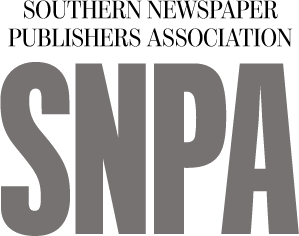Texas challenge to 'quickie election' rule fails
On June 1, Judge Robert Pittman of the U.S. District Court for the Western District of Texas – an Obama appointee – dismissed the case filed by the Associated Builders and Contractors of Texas.
The court refused to consider the legislative history of 1947 and 1959 changes to the National Labor Relations Act, which make it clear that election hearings should occur before the election, and that there should be at least 30 days between the filing of the election petition and the election date.
The court ruled that it was unaware of any authority establishing that the language of the National Labor Relations Act prevents the board from requiring the filing of a statement of position prior to a pre-election hearing; requires the board to permit employers to introduce evidence concerning voter eligibility in a pre-election hearing; or prevents the board from delaying consideration of voter eligibility prior to an election.
The court also rejected out of hand employee privacy concerns raised by the rule's requirement that employers turn over employees' cell phone numbers and e-mail addresses. The court was dismissive of the free speech arguments advanced by the Associated Builders.
Expect this case to be appealed to the U.S. Court of Appeals for the Fifth Circuit. Another case filed by the U.S. Chamber of Commerce in Washington, D.C. remains pending. Employers should be proactive and establish a task force prepared to mount an anti-union campaign within a dramatically shortened time frame.
Newspaper carrier not employee in Oregon
When a newspaper carrier's contract was terminated, he filed for unemployment benefits with the state of Oregon. The newspaper carrier delivered to home subscribers only. The publishing company, Democrat-Herald, relied upon the following provision of the Oregon Code:
Employment does not include service performed by an individual in the delivery or distribution of newspapers or shopping news, not including delivery or distribution to any point for subsequent delivery or distribution.
Based upon the fact that the newspaper carrier delivered to home subscribers only, his relationship was excluded from the definition of "employment." Thus, the carrier is not entitled to benefits from the Democrat-Herald's account, and the publishing company owes no unemployment taxes on home delivery newspaper carriers.
Editor's Note: The Zinser Law Firm, P.C. represented Democrat-Herald in this case.
Security screenings are not compensable time
Two Amazon.com employees filed a Wage and Hour lawsuit seeking back pay for the time spent completing a security screening process they were required to undergo before leaving work. Their job was to retrieve products from warehouse shelves and package them to Amazon customers. The security process, including waiting in line, could take up to 25 minutes per day.
The U.S. Supreme Court ruled that the security screening time was non-compensable. The court stated that simply requiring an activity did not make it compensable under the integral and indispensible test. The court ruled that an activity is "integral and indispensible" to the principle working activity if it is "an intrinsic element of those activities, and one with which the employee cannot dispense if he is to perform his principle activities."
The court concluded that standing in line for security screenings could be dispensed with, and the employees could still perform their principle warehouse duties of pulling and packaging products.
Threatening Facebook postings are okay
The U.S. Court of Appeals for the D.C. Circuit has upheld a ruling of the National Labor Relations Board that threatening postings by employees on a union's Facebook page are not in violation of the National Labor Relations Act.
In this case, there was a strike in progress. The Facebook page could only be accessed by union members who were employed and in good standing with the union. No other persons had access to the site, or the ability to post comments to the page. Leading up to and during the strike, communications posted by union members were often threatening and violent. One employee posted a comment asking if the picketers could "bring the Molotov cocktails" and to picket a hotel where the scabs were being housed.
The comments posted clearly threatened employees with physical harm if they refused to participate in the strike. The Facebook page threatened employees with the use of violence and the use of explosives if they refused to participate in the strike. This was a union Facebook account. The union did nothing to moderate or disavow the comments on the page.
The NLRB and the court relied solely on the fact that the Facebook postings were not available to the general public. However, the postings were clearly designed to intimidate and coerce an employee who might consider crossing the picket line. Even though the union maintained the Facebook account and facilitated the publication of the threats, the court found the union did not authorize or otherwise condone the posting of the messages.
This court decision is very disappointing. It will encourage future violence toward employees who exercise their rights to cross a picket line.
 |
L. Michael Zinser is the founding partner of The Zinser Law Firm in Nashville, Tenn. The firm, which has a heavy concentration of clients in communications media, represents management in the area of labor and employment. Zinser can be reached at (615) 244-9700 or mzinser@zinserlaw.com.






